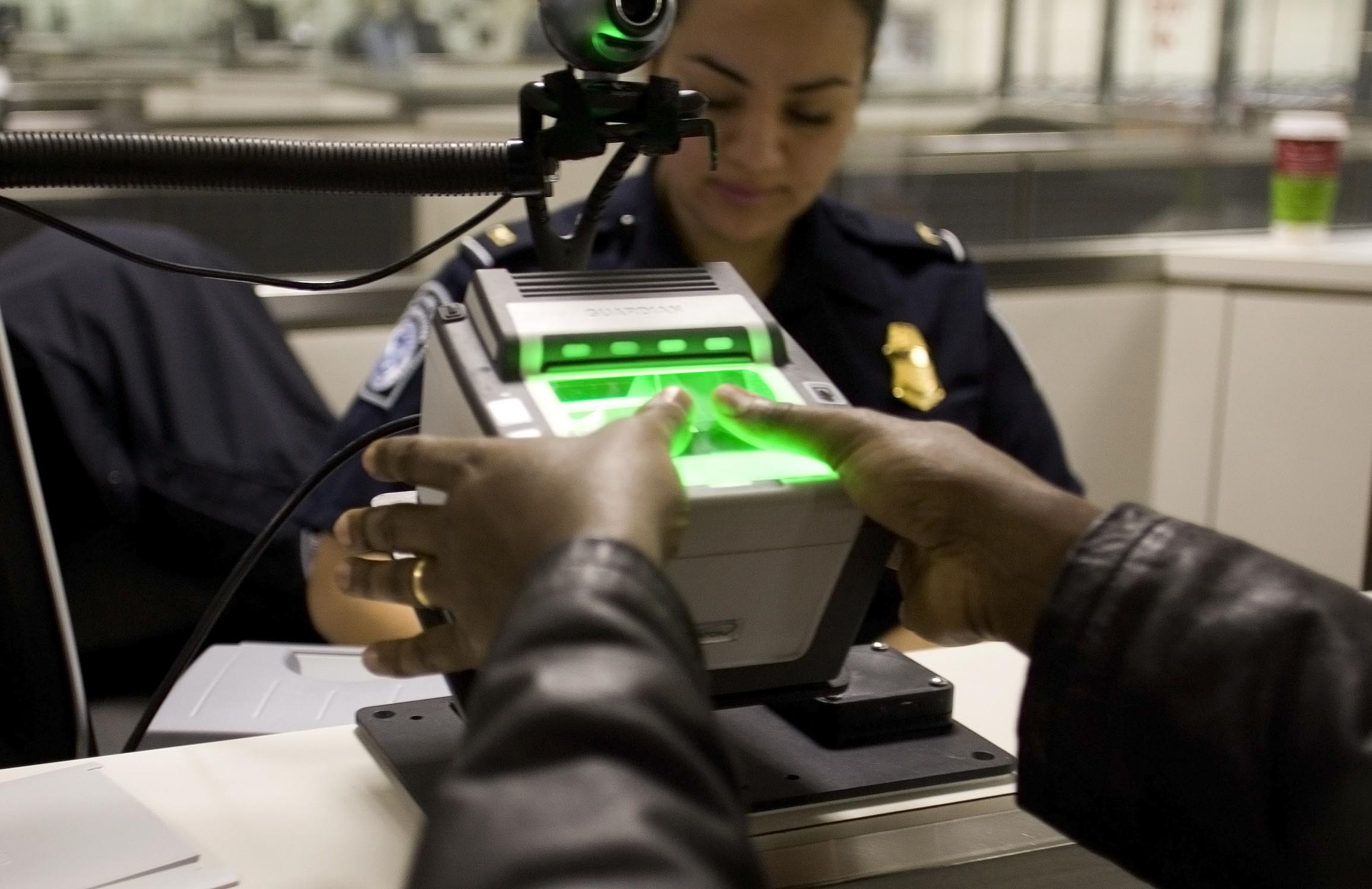To participate in the Visa Waiver Programme, Israel allows U.S. authorities access to its biometric data. The government in Washington wants to make this mandatory for another 40 countries.
The US government has sent a letter to EU member states announcing an Enhanced Border Security Partnership (EBSP). This would regulate access to fingerprint databases by US border authorities. It would be a condition for countries whose nationals can enter the United visa-free.
The German government also received such a notification via the U.S. Embassy in Berlin on 9 February, the Social Democratic Party-led Ministry of the Interior confirmed in its answer to a parliamentary question. “Essentially, among other things, this is probably intended to enable the exchange of biometric data, among other things of travellers,” the ministry writes somewhat nebulously, adding that further details are currently being clarified. The regulation is to apply from 2027, it says.
5.5 million personal data sets with fingerprints at the BKA
According to the U.S. government, the Visa Waiver Programme (VWP) currently covers 40 countries. It allows entry for tourist or business purposes for up to 90 days. Although no visa is required, travellers must apply in advance for a valid Electronic System for Travel Authorisation (ESTA) and provide information on the reason for and course of the trip. Alternatively, a regular visa can be applied instead of the ESTA.
The VWP does not collect biometric data, nor do the ESTA pre-registrations provide for this. It can therefore be assumed that the European databases will only be searched when the final border crossing takes place in the USA. This is the latest point at which all VWP participants must submit their fingerprints and facial images.
It is unclear which national databases the US authorities want to access in the individual countries. In Germany, fingerprints that can be used for police purposes are stored in the INPOL file, which is kept by the Federal Criminal Police Office (BKA). Entries in the Central Register of Foreigners are also mirrored there. Last year, INPOL contained 5.5 million searchable personal records, as well as some 546,00 unsolved dactyloscopic crime scene traces.
French EU Presidency wants to respond
Israel will apparently be the first country to open its biometric databases to American immigration control, but again this is not specified in the announcement on this. In early March, the US Department of Homeland Security (DHS) signed an agreement to this effect with the Israeli Minister of the Interior and the Minister of Public Security. So far, Israel is not a member of the VWP, so its planned future participation comes with the query of biometric data from the outset.
Although the U.S. government has also sent a communication to the EU Commission on the planned Enhanced Border Security Partnership, as far as is known it does not request access to EU information systems. Nevertheless, the French EU Presidency is planning a joint response on behalf of the member states assembled in the Council. The move is surprising because the government in Washington could interpret it as an invitation to also access EU databases.
The central, EU-wide Visa Information System, for example, contains some 55 million records of fingerprints. Another 6.5 million fingerprint sheets are in the Eurodac database, which is maintained by all Schengen states; these can also be searched by the police. But more likely would be a connection to the Prüm system, which connects the fingerprint and DNA databases of police forces in Schengen States, will now be enhanced to facial recognition. Also third states can participate, the first one will be Great Britain after Brexit.
Both the letter to the European governments and the agreement with Israel speak of an “exchange” of information. It is therefore possible that the US government will also make biometric databases accessible to foreign border authorities. A query by authorities of a European country could then take place as part of the Entry-Exit System that the EU will put into operation next year for visa-free travellers and that requires the submission of four fingerprints and the facial image at every EU external border – which may include airports.
Exchange for law enforcement already since 2016
Access to German fingerprints and DNA samples is already regulated in an Agreement on “Preventing and Combating Serious Crime“ (PCSC) of 2008, but only for law enforcement in case of a “serious threat to public security” and not for cross-checking travellers. Its implementation followed the conclusion of a technical agreement in 2012, albeit with a four-year delay. The U.S. government concluded similar with other countries like Greece and Italy as well.
Contact points for the exchange in PCSC are the BKA and the Federal Bureau of Investigation (FBI). In the first two years, 101 requests were sent to Germany in this way, and German authorities made 191 searches in the same period. As a result, five matches were made for fingerprints.
Facial images are not yet covered by the agreement, modelled on the Prüm Decisions, with which Schengen states have allowed each other access to their police-stored fingerprints and DNA data since 2008. The Prüm system is currently being expanded to include facial images, so it is quite possible that the USA will also demand such an expansion in the PCSC and that the FBI will be able to query biometric photos in Germany in a few years.





Leave a Reply